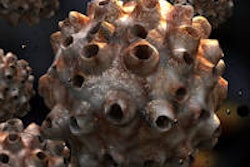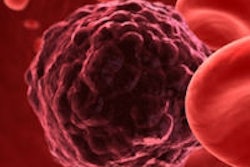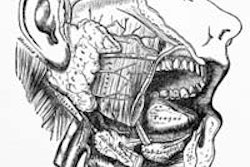Dear Oral Cancer & Diagnostics Insider,
The newly formed Global Oral Cancer Forum is recruiting international participants to share the issues they face; learn about innovations, models, or ideas to curb growing rates of the disease; and help patients who suffer from the complications of treatment. In this latest Insider Exclusive, Forum Executive Director Shannon Nanne, RDH, discusses the significance of the international collaboration with DrBicuspid.com.
In other news in the Oral Cancer & Diagnostics Community, the risk of developing salivary gland cancer might be higher in people with mutations in either of two genes associated with two commonly occurring cancers. Read about the work of Ohio researchers that reveals a link between inherited mutations in the BRCA1 and BRCA2 genes and the kinds of cancers associated with them, featured in a new study in JAMA Otolaryngology -- Head & Neck Surgery.
Meanwhile, there is currently no effective treatment for HPV, the most common sexually transmitted infection in the U.S. that is also associated with the majority of an estimated 30,000 oropharyngeal cancer (OPC) cases in the country annually. But a Japanese mushroom extract appears to be effective for eradicating HPV. Click here to read about the pilot clinical trial by Texas researchers, who presented their findings at the recent International Conference of the Society for Integrative Oncology.
In a related story, an international coalition of cancer specialists has identified an immune-related gene called transforming growth factor beta receptor 1 (TGFBR1) that appears to play a pivotal role in determining whether a person develops HPV-related cancer. Studies show that most patients with oropharyngeal squamous cell carcinoma are HPV-positive, especially for HPV types 16 and 18. Read about the research, which was discussed in the journal Cancer Research.
In other HPV research, investigators at Pennsylvania's Fox Chase Cancer Center say that patients with HPV-positive OPC have significantly higher rates of complete response after chemoradiation therapy and may avoid neck surgery. Click here to read about their study, which was presented at the recent American Society of Radiation Oncology annual meeting.
And what if a simple saliva test could diagnose the early stages of oral cancer, diabetes, neurological disorders, and autoimmune diseases? Read about the "treasure in saliva" found by University of California, Los Angeles researchers, who conducted the most comprehensive analysis ever done of RNA molecules in human saliva. Their findings are outlined in Clinical Chemistry.
In other news, scientists have used an experimental drug produced from the seeds of an Australian rainforest plant to kill head and neck tumors, as well as melanomas. Researchers found that a single injection of the protein kinase C-activating (PKC) compound EBC-46 led to rapid breakdown of tumors in preclinical trials on mice and human tumor models. Click here to read about the new study in PLoS One.
And pain often is the first sign of head and neck cancer (HNC), as a result of destructive lesions and direct tissue and bone involvement. Now, researchers at the MD Anderson Cancer Center in Houston have found that pretreatment pain intensity is an independent survival predictor for HNC patients. Read about the new study, published in the Journal of Pain.
Finally, a newly discovered type of immune cells in tumors is associated with less severe cancer outcomes, especially for HNC and breast cancers. Cancers prevent the activation of T lymphocytes within the immune system that specifically target tumor molecules that the body recognizes as abnormal. Now, University of California, San Francisco researchers have found a rare population of cells -- antigen-presenting CD103+ dendritic cells -- that tries to activate tumor-targeting T lymphocytes. Click here to learn about the therapeutic potential, described in a new study in the journal Cancer Cell.



















